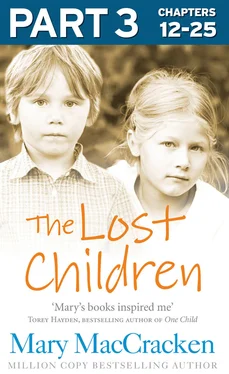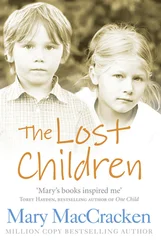I left then and drove down the highway in the heat of the late afternoon, but before I have gone a mile I pull to the side of the road and put up the top of my convertible. Even with the heat I put the top up, and put my own polished shell back on as well.
I went to the marriage counselor alone. I tried to persuade Larry to come with me, but he said it was ridiculous because there was nothing wrong. I thought perhaps it was true – it might be ridiculous, but for the opposite reason: everything was so wrong it could not be put right.
I sat opposite the tall, distinguished psychiatrist – shy, not knowing what to say, intimidated by the black leather couch on the outer rim of my vision. Will he ask me to lie down?
“Yes …?” he says.
I try to tell him about all the good things and the bad. My voice seems far away. I can hear it while I am talking, and it is almost as though I am speaking about another person. I talk about our children – and Larry’s and my good physical relationship, and the lovely house and tennis – but when I try to tell him about the bad parts, I find I cannot talk about them very well; all the reserve I was taught as a child, the New England sense of privacy, wells up and sorrow fills my throat.
“Humph. Now. So. Do you think you are beautiful?”
Surprise makes me raise my head and look at him. “No,” I say. “No.”
All angular and lean is Dr. McPhearson, but now he smiles at me, a slow, kind smile and I like him suddenly.
“Ahhrph.” This man has his noises, too, not so different from the children. “So. Well, do you feel you are intelligent?”
“A little. Some. I can think better than I can talk.”
It is easier to talk now, and I tell him more. How it will not be as difficult to live with Larry with the children gone next year, Rick to college, Elizabeth to Kent. How we never fight, Larry and myself – how if I could just be content with the things I have, it would probably be all right; but there seems to be so much emptiness. And then, there is all this love, and I don’t know what to do with it. Larry doesn’t really want it. I don’t blame him – it’s too much. It gets too much for me too. I get all filled up with it and I have to let it out. Do you think maybe it’s like too much fat – that it could be slimmed down?
“The school,” he suggests.
“Yes. I am good at that,” I say. “I love teaching there, but, I don’t know – it’s hard to say it – but you see, anyone could do that. I mean either a man or a woman could do that kind of loving and it’s – the school is – good for that part; but there’s this other part of me that loves only like a woman. This part is for a man. I love being a woman …”
He takes off his glasses and smiles again, a small, tired smile.
“Yes,” he says. “Can your husband come with you next time?”
Larry almost came, but then he was detained at his bank in the city and so I go alone again. This time we talk about the laser: Light Amplification by Stimulated Emission of Radiation. Delicate, intricate, powerful. Energy harnessed from a larger source. Is it possible that love could be like this?
On the fifth visit he says unexpectedly, “What will you do if you leave your husband?”
“I’ll teach.”
“And how will you live? Who will take care of you? Have you ever lived alone?”
It seems amazing to me. I realize I never have. I have never spent a night alone. First my parents – overnights with friends – college, roommates – Larry – my parents when he was in the army – the children.
“No,” I say. “Not really. But I am sure that I can learn.”
Dr. McPhearson called Larry and arranged an appointment, and Larry went first alone and then with me. He explained carefully to Dr. McPhearson how there was nothing wrong, that I tended to be too sensitive, imagine things.
I sat silently, listening, shrinking, getting smaller again.
“Hrrmph. Ah. Mmph.” Dr. McPhearson clears his throat, and the familiar noises cheer me. “Well, Mary. What do you say?”
“I am going” – sounding stubborn, I knew, unreasoning – but it would take so little. It would be so easy to stay.
Dr. McPhearson recommends that I take a trip. Living alone is different from thinking about it, he says. Larry is enthusiastic. Just what she needs, he says – a trip, to get away from it all. He likes the doctor, and I am glad. He will need someone to talk to.
I go for one more visit.
“Ahhh,” he says, even before we begin. “I am sorry. Perhaps if you had come ten years ago …”
I shake his hand before I go. Is that how you say good-bye to a psychiatrist?
“Thank you,” I say, “for all your time.”
“Yahrmph.” A combination of yes and throat-clearing. “Is there anything more? Anything I can do? Where will you be?”
“California, I think. I’ve never been there.”
He stands silently.
“There is one other thing,” I say. “The guilt. I feel a big ball of guilt … Here.” I touch my stomach. “Is there anything I can do about that?”
“Guilt. Why is that? What do you mean, guilt?”
It is so difficult to tell him and I think again how hard it is to communicate through words, and I marvel to myself that we all do as well as we do. We are all interpreters by necessity, even though we are not trained or suited for the profession. Simultaneous interpreters, hearing one language and then speaking another, our own. Ahh, we need more tolerance, more admiration for one another.
“I feel guilty about leaving him alone. Who will make the coffee in the morning or put flowers in the silver bowl? And the animals, will they be all right? How will Larry know how to order the meat or which slipcovers to send to the cleaner’s? He doesn’t know how to work the dryer or where I packed his winter things …” I stop in confusion.
“You are not his mother, Mary?”
And I want to say, I know, I know, and yet, part of me is. Just as I can see separate parts of me, parts that are satisfied working with the children and other parts that are man-oriented, so I also see blended centers of me. Where does the mother end and the lover begin? Which is student, which teacher? Is being a wife supposed to be a separate, isolate thing? I do not think it can be.
But before I can speak again Dr. McPhearson interrupts my thoughts. “It will be all right,” he says. “It is like grief – the guilt – you must just work it through.”
Coming in from the hot June air, I notice that the halls of the school are cool and dark, strangely quiet and empty without the children. The Director is there, though, talking on the phone, and she waves as I walk through her office on the way to my classroom.
There are books and papers I want to take with me to California, and I had thought merely to drop by the school and pick them up. I had not realized how strange the school would seem without the children, and now as I kneel in front of the small white bookcase thumbing the speech manual, images of Brian and Matthew superimpose themselves upon the pages and I cannot concentrate.
The Director’s voice floats down the hall, echoing in the silent spaces: “I think it’s going to come out all right, Arthur. I’ve just gone over the books again and I’ve made a list of the most urgent bills. Yes. I know. There are quite a few, but a lot of them we can stall until fall. We’ll be all right then; the school boards will be sending in half of the tuition.”
Arthur must be Arthur Siegal, the school’s accountant, Doris’s cohort in fighting the never-ending battle against the drain of money.
“Yes, all right. I can give you the list of the ones I’ve marked most urgent now, but I’d like to get together with you soon, get these things paid before I leave. You didn’t? Oh … Guatemala. No, no, just for the summer, teaching in one of the colleges. I’ll be back in the fall.”
Читать дальше












